The President of Ain Shams University and the deputies inspect the administrative headquarters of the Faculty of Veterinary Medicine
Prof. Dr. Mahmoud El-Metini, President of Ain Shams University, accompanied by Prof. Dr. Abdel Fattah Saoud, Vice President of Education and Student Affairs, Prof. Dr. Hisham Temraz, Vice President of Community Service and Environmental Development, Prof. Dr. Ahmed Galal, Dean of the Faculty of Agriculture, Prof. Dr. Yasser Mujahid, Director of the Engineering Consultation Center at the university, Prof. Dr. Hisham Al-Hariri, Vice Dean of the Faculty of Agriculture of Education and Student Affairs, Prof. Dr. Walaa Abdel Ghani, Vice Dean of the College of Agriculture of Graduate Studies Affairs, Prof. Dr. Nabil Al-Madani, Vice Dean of the Faculty of Agriculture of Community Affairs and Environmental Development, and a number of faculty staff inspected the administrative headquarters of the new Faculty of Veterinary Medicine, which will begin the study in the next academic year 2021/2022 on the campus of the Faculty of Agriculture at Ain Shams University.
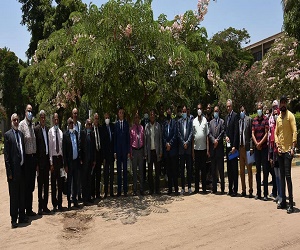 |
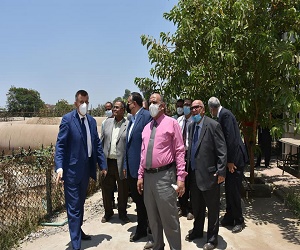 |
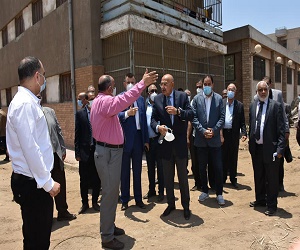 |
||
He met with the faculty staff entrusted with developing the plan and structure of the Faculty of Veterinary Medicine, and they are: Prof. Dr. Ahmed Khafagy, former head of the Department of Bacteria, Immunology and Fungi at Suez Canal University and General Supervisor of the Faculty of Veterinary Medicine, Prof. Dr. Khaled Salah El-Din Mohamed, supervisor of the Department of Animal and Infectious Diseases, Prof. Dr. Hamza Mohamed Ibrahim, supervisor of the Department of Bacteria and Immunology, and Prof. Dr. Saeed Kamal Aboul Gheit, Director of the Electronic Measurement and Evaluation Unit.
He appreciated the role they play and listened to their suggestions in this regard.
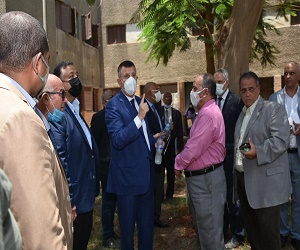 |
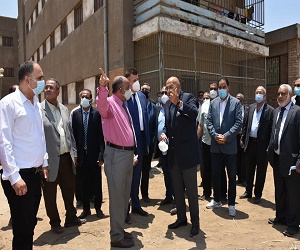 |
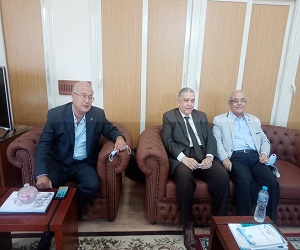 |
||
The visit included a visit to the administrative building designated for the Faculty of Veterinary Medicine, which was designed and supervised by the University’s Engineering Consultation Center, in addition to the new anatomy lab, the attendees also inspected some of the newly established laboratories for students, such as the Biology Laboratory 1, the Center for Microbial Wealth, the new greenhouses in the faculty, the Strawberry Development Center, the Microbial Toxicity Unit, the vegetable farm, the fisheries nurseries, and the headquarters of the Social Welfare Association.
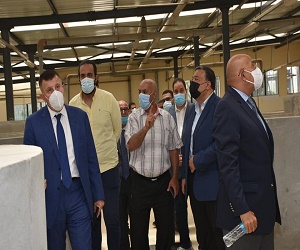 |
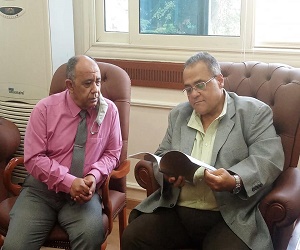 |
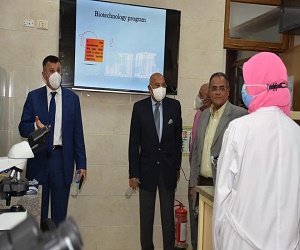 |
||


.svg)




